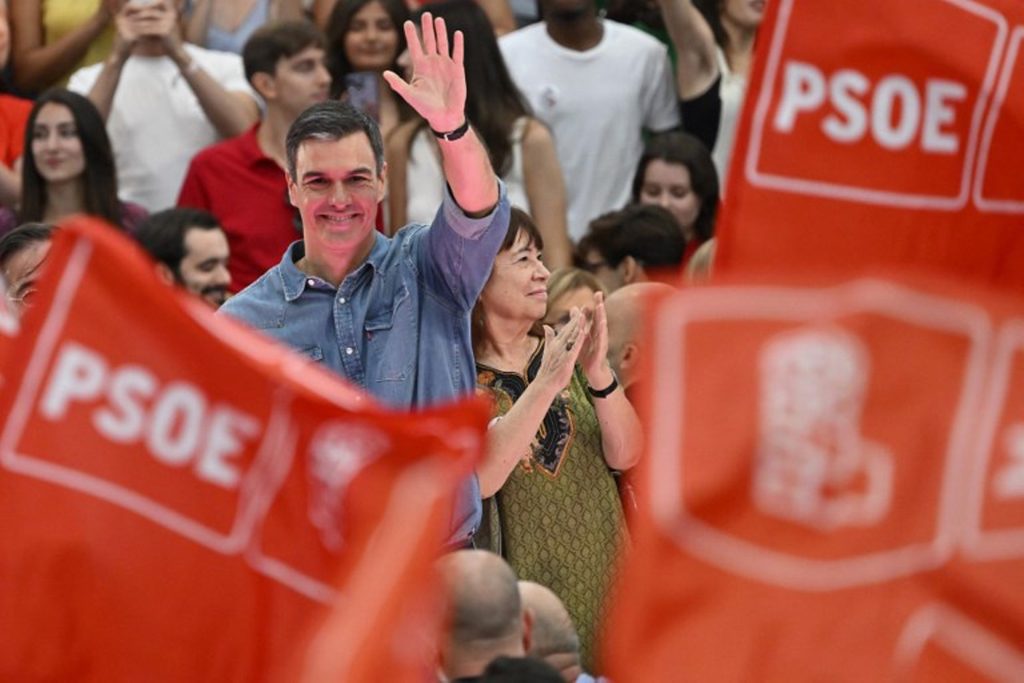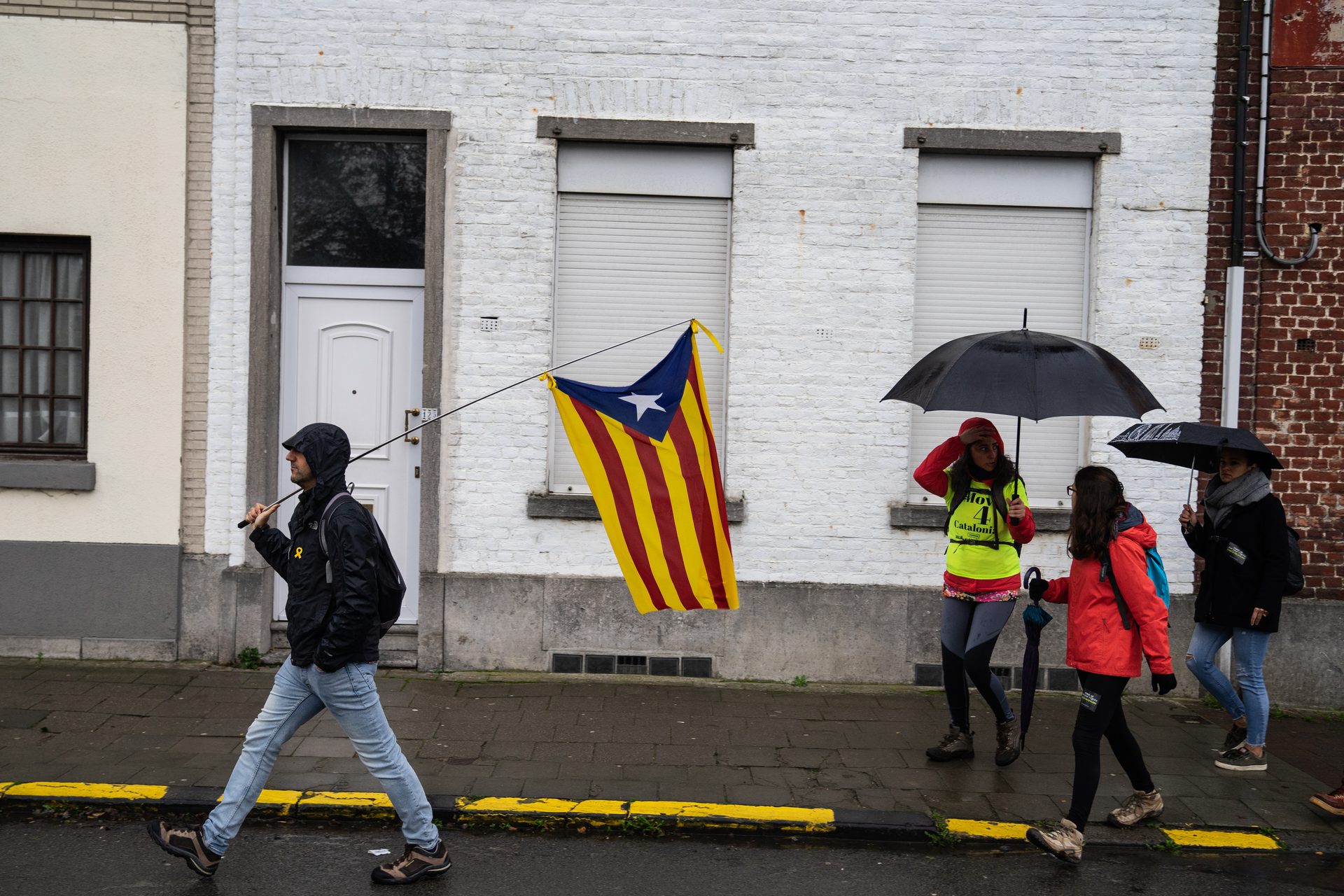An unlikely figure – who is currently in exile in the Belgian town of Waterloo – will be key to the formation of the next Spanish government. While the international media had far-right party Vox as the role of the key player in the Spanish elections, exiled Catalan separatist Carles Puigdemont now holds all the cards.
The seven seats won on Sunday’s election by Puigdemont's Junts per Catalunya party could be key in allowing Spanish Prime Minister Pedro Sánchez to form a new government. Sánchez's Socialist Party (PSOE) are more likely to win the support of Basque and Catalan parties, which already regularly back the government in parliament.
What is unusual in Puigdemont’s central importance to the formation of a new Spanish government is his role as the instigator of the 2017 Catalan referendum as the former regional president.
With Catalonia nearly seceding from Spain, authorities placed the responsibility for the independence referendum squarely at his door. Wanted for arrest, Puigdemont escaped to Waterloo in Belgium to avoid facing prison in Spain, unlike many Catalan colleagues who served their time.

Catalan leader in exile Carles Puigdemont arrives at a session of the council chamber with Catalan former ministers in exile, at the Brussels Palais de Justice, Monday 16 December 2019. Credit: Belga / Thierry Roge
The conservative Catalan separatist escaped Spain in the aftermath of the October 2017 referendum and established his residence in Wallonia. In 2019, he was elected as a Member of the European Parliament, but on 5 July this year an EU court lifted his parliamentary immunity alongside two other Catalan MEPs, with Spain’s arrest warrants looming over their political activity. On Monday, fellow party MEP Clara Ponsati was arrested and released after publicising she was back in Barcelona.
All eyes on Waterloo
Now, in a curious twist of fate in Sunday’s snap elections, the right-wing coalition did not get numbers. The final blow for the right-wing block was the Basque nationalists PNV ruling out working with PP’s Alberto Núñez Feijóo on Monday night, leaving him no viable option to form a government despite winning the most seats.
Now, all eyes in Spain have turned to the little Walloon town of Waterloo to see if Sánchez can form a new government with the support of Puigdemont’s Catalan independentists, or send Spain back to the ballots.
“One day you are decisive in order to form a Spanish government, the next day Spain orders your arrest,” Puigdemont tweeted from his home in Waterloo this week.

Carles Puigdemont together with pardoned Catalan leaders at a meeting in Waterloo, July 2021. Credit: Belga / Benoit Doppagne
Puigdemont’s party have already opened their negotiation position by stating that Sánchez’s PSOE party needs him more than they need him.
Analysts expect that a new binding referendum on Catalan independence, and the amnesty for Catalan leaders, will be the top prizes for Junts. However, it is not an option that Sánchez and the PSOE would be ever willing to accept. Equally, a governing right-wing coalition hostile to Catalan independentism will also not be palatable for the movement.
Junts want to insist that voting to reject a pact with Sánchez is not voting 'yes' to Feijóo and the right. "We do not feel obliged to choose and we are not going to fall into the emotional trap of choosing between Sánchez and Feijóo," Junts’ Secretary-General, Jordi Turull, said on Monday to Spanish newspaper El Diario, in an attempt to shake off the pressure of taking the blame.

If he can convince Puigdemont, Pedro Sanchez is set to become Spanish Prime Minister. Credit: Belga
Left-wing alliance Sumar, in an electoral pact with PSOE, announced on Monday that it had sent one of its officials in Catalonia to begin talks with Junts. The Socialists and Sumar are calling on the Catalan conservatives to "rise to the occasion," while some sectors of the Republican Left of Catalonia are also piling on the pressure by stating its a question of "Catalonia or Vox."
Puigdemont has said that his party does not owe anything to "clever political scientists, talk shows, Twitter pseudonyms, nor to apologists for abstention" – but reiterated his dedication to his voters. "Tomorrow will be another day (also in exile) and we must continue to defend Catalonia against those who want to liquidate our language, culture and nation," he said on social media.
The balance is delicate, and ironically Spain has turned to Puigdemont to decide its fate or risk setting off another round of elections – which is unlikely to ingratiate him further with the Spanish general public.

